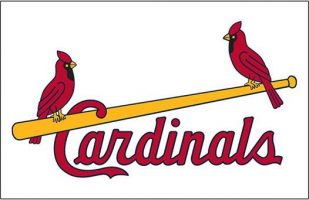After I mentioned last week that I may be the only guy in St. Louis who doesn’t care about the Cardinals, Andre D’Antonio e-mailed:
Paul, I listened to your radio shows during the many years you were on the air in St. Louis, and I never would have guessed that you’re not a Cardinals fan. How did you fool us for so long?
I wasn’t trying to fool anyone. After all, I wasn’t hosting a sports radio show, and had plenty of other things to talk about. I kept current on all sorts of news stories, so I had a general idea what was up with the Cardinals, particularly later in the season and post-season (when they got there), and I was in the habit of watching SportsCenter, so I saw many of the highlights without having to sit through the drudgery of a three-hour, one-nothing shutout. That gave me enough of a basis to casually comment on the games or ask semi-knowledgable questions of an actual sports reporter. But I didn’t know the player’s names, the pitching rotation, or what the manager’s strategy was.
My baseball naivety did become a problem in 2004 when I moved from KTRS to KMOX, which carried the games and wanted everyone on the air to talk about the Cards enthusiastically. For the most part, like Meg Ryan in Katz’s Deli, I faked it. The station got me a Busch Stadium pass so I could go up to the press box and watch for free, but I only did that a few times when they played an afternoon home game, which meant that part of my show was pre-empted, but I’d still have to eventually talk about what I’d seen.
I do remember one very challenging day when the Cards made it to the World Series and KMOX decided to have me do the last two hours of my show from a table in front of the ballpark as fans began streaming in. It was just a three-block walk, so I went over during the 4pm news, trying to figure out an angle. I knew that this was a big deal, and I’d followed the playoffs as closely as I could, but I still didn’t have the head full of Cardinals stories and stats needed to pull this off.
As I sat down, an idea hit me: make this about the fans, not the team. They were much more immersed in the history of the franchise than I ever was, so why not let them handle the stories and stats? As a skilled interviewer, all I had to do was pose the right questions and let the callers do the talking. I asked listeners to tell me about the first time they’d gone to a game as a kid, what it was like to take their own children, and which famous moments they’d actually been in the stands to see. Boom! Their answers easily filled the two hours without exposing me as a Cardinals ignoramus. The only other thing I remember about that World Series is the Cardinals were swept in four straight by the Boston Red Sox, who won their first championship ever.
My boss thought I did a good enough job with that assignment that, the following February, he decided to have me do my afternoon drive show from Cardinals spring training. Normally I would have hated the idea, but getting a free trip to Jupiter, Florida, in the middle of winter didn’t seem like such a bad thing. Plus, I knew that the station’s sports guy, Mike Grimm, would be there, and I could lean on him.
At the time, the Cards had a relief pitcher named Ray King who liked my show enough to call in every once in awhile. So, my plan was that, when I got down there, I’d talk to Ray and then have him or Mike introduce me to some of the other players in the clubhouse. I’d ask a few ridiculously generic questions, get their responses on tape, and use them later on the show.
Unfortunately, that turned out to be the day that Mark McGwire testified on Capitol Hill about steroids use in baseball — and he was horrible. His testimony immediately became the top talk topic du jour, and here I was, at the team’s training camp, with access to his fellow players and coaches. Even more unfortunately, none of them wanted to say word one on the subject, rebuffing my advances over and over again. Even Ray, who I finally tracked down, said he was happy to see me and would gladly do an interview, as long as I didn’t ask him about McGwire. I knew this wasn’t good.
My producer had pulled audio of McGwire and lined up a couple of sportswriters to discuss his controversial remarks at various points during the show, but I had only a series of no-comments from the team I was in the same facility with. My entire opinion on the matter was that players should be allowed to use any performance-enhancing substance they liked because more home runs means more highlights for me to watch on SportsCenter. The 1998 race between McGwire and Sammy Sosa to break Roger Maris’ record had reinvigorated baseball and drawn attention from even non-fans like me, and who would want to go back in time, take away their steroids, and reverse that?
As I’d done during the World Series, all I had to do was open the phone lines and let the listeners take over. After I shared my opinion, I let them do that same — and they did, in droves. I essentially just played traffic cop, letting them argue with each other without getting in the way.
And that’s how I made you think I cared about the St. Louis Cardinals.

